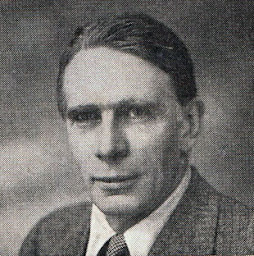A fishing story with no red herrings to confuse the trail
 |
| Death Is No Sportsman was first published in 1938 |
A group of men, who are all devoted to the pastime,
gather at a small hotel, looking forward to spending a pleasant weekend on the
river bank. Although the men are not friends, they try to get on amicably so they
can continue to share the fishing rights they hold jointly to a small, but
desirable stretch of the river Didder.
Behind their superficial courtesy towards each other,
there are clearly tensions. Also, as regular guests at the hotel, they know the
local people and are aware of the passions and rivalries going on below the
surface in the small community.
All this is beautifully set up by Cyril Hare in the
first few pages and it will come as no surprise to the reader when a body is
discovered at the side of the river the following day.
The victim is the local squire, a man who was
unpopular with both the fishermen and the villagers. It is quickly established
that he has been shot in the head.
The corpse is discovered by a young man connected with
the fishing syndicate, soon after his arrival at the inn. He is subsequently
revealed to have deep feelings for the wife of the dead man, so the stage is expertly
set by the author for a mystery involving interesting characters in an
evocative setting.
Cyril Hare was, in fact, the pen name for Alfred
Alexander Gordon Clark, who was born in 1900 in Mickleham in Surrey and went on
to become a barrister and a judge.
The writer’s pseudonym was derived from a mixture of
Hare Court, where he was in Chambers as a barrister in London, and Cyril
Mansions, where he lived.
 |
| Hare was a practising barrister and judge as well as a writer |
After the war, Hare, as Clark, was appointed a county
court judge in Surrey. He died in 1958, when he was at the peak of his career
as a judge and at the height of his powers as a master of the whodunit.
In 1990, when the British Crime Writers’ Association
published their list of The Top 100 Crime Novels of All Time, they awarded the
85th place to Hare’s 1942 novel, Tragedy at Law, which is considered by many to
be his best work.
In Death Is No Sportsman, the police quickly find
the murder of the local squire too complex for them to solve and call in Scotland Yard. In the following
chapter, we see Inspector Mallet, ‘a very tall, very broad man, with a mild red
face set off with an unexpectedly ferocious-looking waxed moustache,’ descending
from the train ready to take over. He investigates with the thoroughness the
reader expects of him, but the local police find his attention to detail mildly
irritating.
I found Death Is No Sportsman to be an intriguing
mystery that always plays fair with the reader. It was so well written that I
enjoyed being guided along by Hare in the direction of the inevitable and satisfying
scene at the end. The suspects have all gathered in a room at the inn next to
the river where Mallet explains everything and the identity of the murderer is
revealed.
Death Is No Sportsman was first published in 1938.
.jpg)


